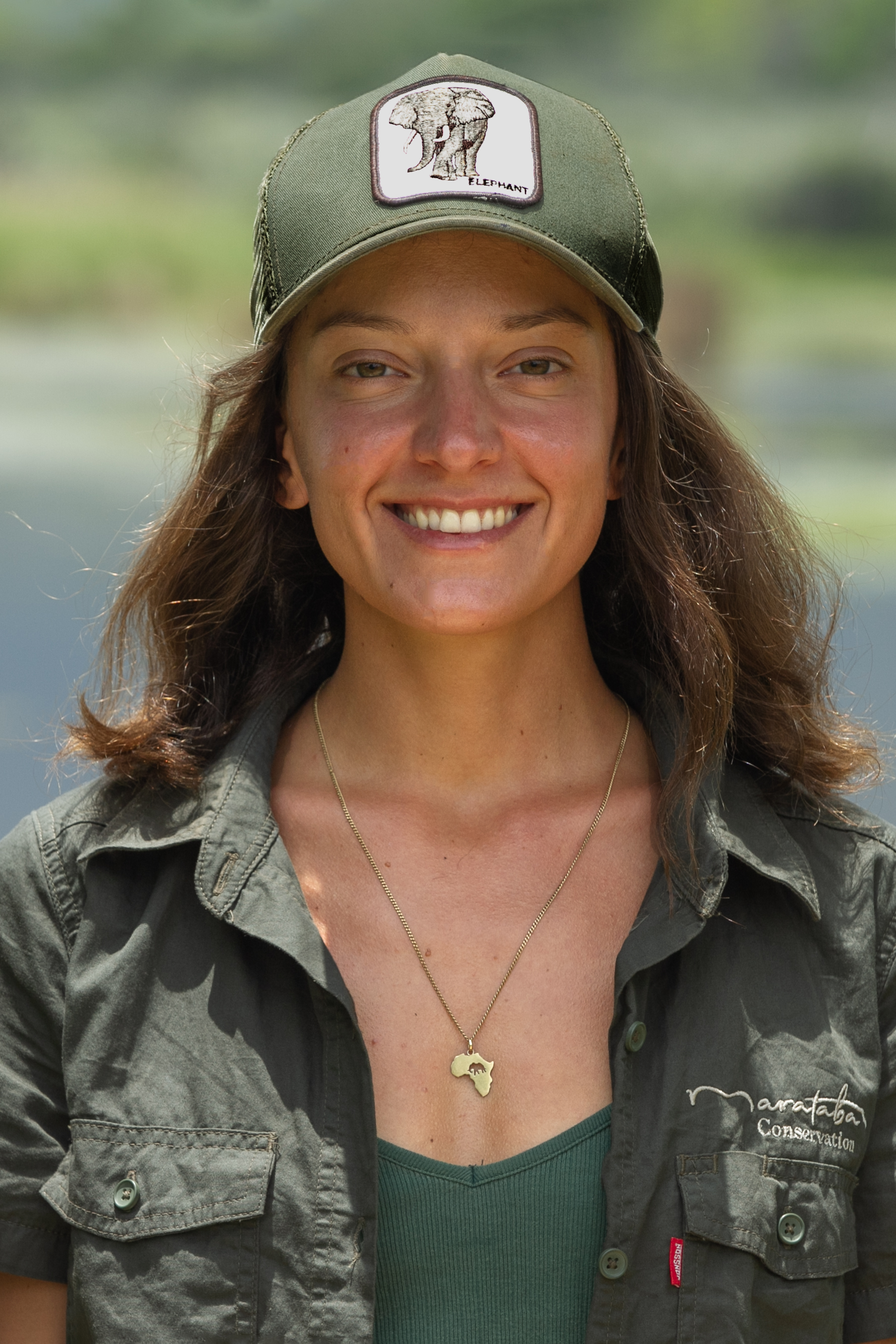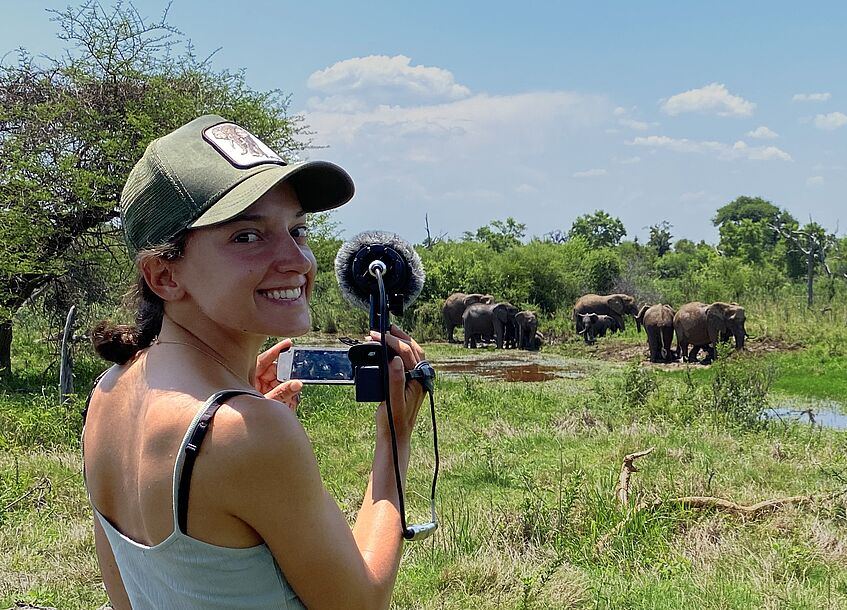Vesta Eleuteri
Department of Behavioral and Cognitive Biology, University of Vienna

■ Nationality: Italian ■ Supervisor: Dr. Angela Stöger-Horwath ■ Key topics: Multimodal and intentional communication in elephants |
PhD project:
Animals communicate using acoustic, visual, tactile, or olfactory signals. Most studies on animal communication explore signal modalities separately; yet, communication in many species relies on the combination of different modalities. But why did multimodal communication evolve? What do animals specifically need to communicate when combining signals of different modalities? Signal combinations might, for example, enhance or refine the information transmitted in single signals.
Elephants are long-lived, large-brained, social mammals living in a multi-level society, and possessing elaborate cognitive behaviour and a rich communicative repertoire of signals of different modalities. African savannah elephants use different vocalizations, a variety of chemical signals, and over 80 described visual and tactile body acts, which they often combine in elaborate behavioural displays.
My PhD project explores the evolution and functions of multimodal communication by looking at how, when, and why African savannah elephants (Loxodonta africana) combine gestures and vocalizations in multicomponent and multimodal combinations. In order to do so, my PhD project represents the first systematic investigation of elephant gestural communication. Specifically, I am investigating whether elephants gesture with first-order intentionality to achieve cognitively represented goals (Dennett, 1983; Grice, 1969; Tomasello et al., 1985), what is the repertoire of elephant gestures, and aim to provide a first lexicon of their meanings (i.e., goals).
Past experiences:
I graduated in Philosophy at the University of Rome ´La Sapienza´, where I became interested in comparative cognition and wrote a theoretical dissertation on the theories of animal consciousness from Darwin to Panksepp. To gain more practical experience with animals, I was lucky enough to then work as an elephant monitor for the Marataba Contractual National Park in South Africa, where I was immensely fascinated by the gentle giants and became committed to their study and conservation. I thus furthered my knowledge of animal cognition with an MSc in Evolutionary and Comparative Psychology at the University of St Andrews, where I had the chance to study the wild chimpanzees of the Budongo Forest in Uganda. My MSc dissertation investigated the presence of individual and group differences in chimpanzee buttress drumming, a non-vocal acoustic signal used both for long-distance and short-distance communication (supervised by Dr. Cat Hobaiter). I continued exploring chimpanzee communication with an ERC-funded MSc by Research project in Psychology, where my dissertation explored the presence of syntax, reference, and teaching in the gestural communication of the Goualougo population of wild Central African chimpanzees (supervised by Dr. Cat Hobaiter and Professor Richard Byrne). After finishing my MSc by Research, I moved to Vienna to start my current PhD project at the University of Vienna.
Outside the lab:
In my free time I meditate, practice yoga, read, take care of my beloved dogs, go for long walks in nature, travel, and spend time with family and close friends.
African savannah elephants are an iconic species of great ecological and cultural value for Africa and the rest of the world, but they are now facing a continental decline. Over a third of elephants have been lost in the past decade and only around 350,000 individuals remain in the wild (Chase t al., 2016). One of the major threats to elephants´ long-term survival is the loss and fragmentation of their habitat. To help raise much needed awareness on this issue, I am involved in the production of a documentary on the effects of habitat loss on elephants and how conservationists are fighting to ensure a future to this majestic keystone animal.
.. To wake up to the web of intelligence,
to the wild origins of sentience,
to find your voice and raise it,
that others may raise theirs’
for elephants.
(Ian McCallum)
Contact:

Data collection in the Marataba Contractual National Park
